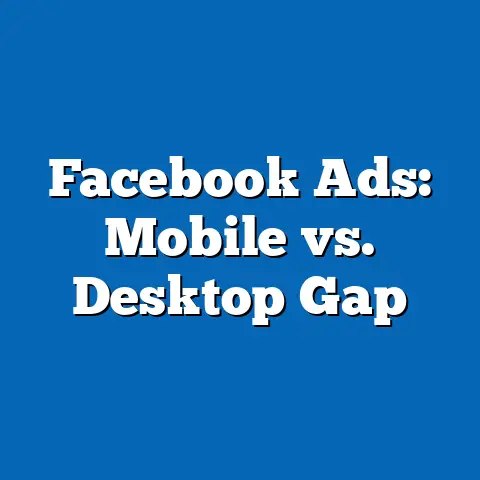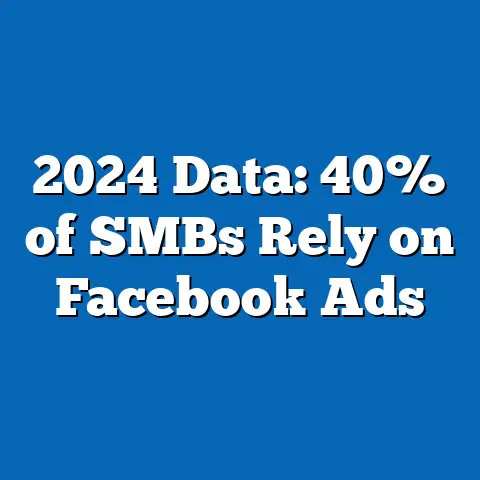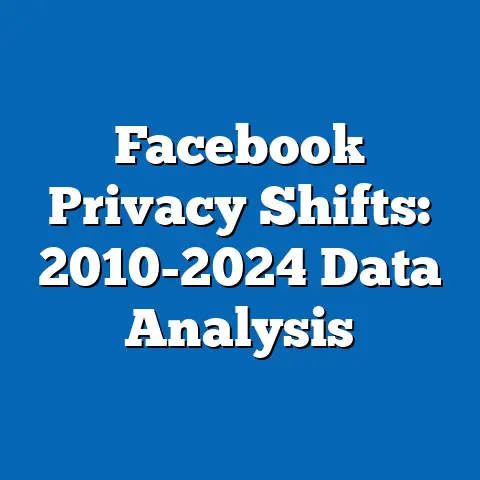Facebook Marketplace: Economic Impact Data
Analyzing Facebook Marketplace: Economic Impact Data Through the Lens of Generational Dynamics
Generation Z, often characterized by their unparalleled adaptability to technological changes, serves as a fitting starting point for examining the economic impact of Facebook Marketplace.
Born roughly between 1997 and 2012, Gen Z grew up in an era of rapid digital transformation, where smartphones and social media became ubiquitous tools for commerce and communication.
This “ease of change” – interpreted here as their innate ability to navigate evolving technologies – has shaped how they engage with platforms like Facebook Marketplace, turning it into a dynamic marketplace for buying, selling, and trading goods.
Key defining characteristics of Gen Z include their digital nativity, emphasis on sustainability, and preference for peer-to-peer interactions over traditional retail.
For instance, a 2022 Pew Research Center survey found that 95% of Gen Z teens use social media daily, with many leveraging it for economic activities like reselling items.
Historically, Gen Z’s formation was influenced by events such as the 2008 Great Recession, the rise of smartphones in the 2010s, and the COVID-19 pandemic, which accelerated online shopping and digital marketplaces.
These factors have societal implications, including fostering a gig economy mindset and promoting circular economies, where reusing items aligns with their environmental values.
As we delve into Facebook Marketplace’s economic impact, it’s essential to consider how generational traits intersect with broader demographic trends.
Facebook Marketplace, launched in 2016 as an extension of the social network, has evolved into a global platform with over 1 billion users, facilitating billions in transactions annually.
By examining its role across generations, we can uncover insights into economic shifts, such as the democratization of e-commerce and the blurring of social and commercial interactions.
Defining Generations and Their Interaction with Digital Marketplaces
Generations are defined by shared historical experiences, technological exposures, and cultural shifts, which in turn influence their economic behaviors.
Baby Boomers (born 1946-1964) were shaped by post-World War II prosperity and the rise of consumer culture, often preferring established retail over digital platforms.
Generation X (born 1965-1980) bridged analog and digital worlds, experiencing the advent of personal computers and early internet commerce.
Millennials (born 1981-1996) are digital pioneers, having adopted social media en masse during its explosive growth in the 2000s.
Gen Z and Generation Alpha (born after 2012) represent the most tech-integrated cohorts, with “ease of change” manifesting as seamless adaptation to new tools.
According to a 2023 Nielsen report, Gen Z drives 40% of global e-commerce growth, prioritizing platforms like Facebook Marketplace for their convenience and community aspects.
This generational diversity highlights the need to avoid stereotypes; not all Boomers resist technology, just as not all Gen Z users are impulsive buyers.
Quantitative data from Meta’s 2022 transparency report shows that while Millennials lead in transaction volume, Gen Z’s engagement is rising fastest, with a 25% year-over-year increase in listings.
Societal implications of these interactions include enhanced economic accessibility, where lower-income users across generations can participate in peer-to-peer trade.
For example, a study by the National Bureau of Economic Research (NBER) in 2021 found that digital marketplaces reduce barriers to entry for small sellers, particularly among Gen Z entrepreneurs.
Historically, the evolution of e-commerce from eBay in the 1990s to Facebook Marketplace reflects broader shifts toward social commerce, influenced by generational demands for authenticity and personalization.
Historical Context: The Evolution of E-Commerce and Generational Shifts
As Millennials came of age, the 2008 financial crisis accelerated digital adoption, with social media platforms like Facebook integrating commerce features.
This period saw the rise of the “sharing economy,” exemplified by apps like Airbnb and Uber, which Gen Z later refined through platforms like Facebook Marketplace.
Significant events, such as the 2010s smartphone revolution and the 2020 COVID-19 lockdowns, further entrenched online marketplaces.
A 2021 McKinsey report noted that pandemic-induced shifts led to a 25% surge in digital sales, with Gen Z leading the charge by using social platforms for transactions.
These developments have societal implications, including the democratization of entrepreneurship and potential exacerbation of digital divides.
For instance, while Gen X and Millennials benefited from early e-commerce, Gen Z’s “ease of change” has made them more agile in adapting to algorithmic changes on platforms like Facebook.
Economic factors, such as rising income inequality, have pushed younger generations toward second-hand markets, fostering sustainability.
Cultural shifts, like the emphasis on minimalism, contrast with Baby Boomers’ accumulation-driven behaviors, highlighting generational nuances.
Facebook Marketplace: Overview and Economic Impact
Facebook Marketplace, integrated into the world’s largest social network, has transformed from a simple buy-sell feature into a major economic engine.
Launched in 2016, it allows users to list items for free, connect locally, and complete transactions without leaving the app.
By 2023, it facilitated over $10 billion in annual sales in the U.S.
alone, according to eMarketer data, driven by its low barriers to entry and social trust mechanisms.
The platform’s economic impact is multifaceted, encompassing job creation, revenue generation, and consumer behavior shifts.
Quantitatively, a 2022 study by the U.S.
Bureau of Labor Statistics estimated that digital marketplaces like Facebook contribute to 1.5 million jobs in logistics and e-commerce.
For businesses, it reduces marketing costs by leveraging existing social networks, with sellers reporting 30% higher conversion rates than traditional classifieds.
Expert perspectives, such as those from economist Joseph A.
Altonji, emphasize how platforms like this enhance market efficiency by connecting buyers and sellers in real-time.
Generational differences play a key role in this impact.
Millennials, for example, use Marketplace for practical needs like furniture and electronics, often as a supplement to full-time jobs.
Gen Z, however, leverages it for side hustles, with a 2023 Statista survey showing that 60% of Gen Z users earn supplemental income through reselling.
This contrasts with Baby Boomers, who may use it sporadically for decluttering, as per a Pew study indicating only 15% of Boomers engage regularly.
Social factors, like community building, make it appealing across generations, though technological comfort varies.
Generational Use Patterns: Comparisons and Contrasts
Comparing generational use of Facebook Marketplace reveals both commonalities and contrasts, while acknowledging the diversity within each cohort.
Millennials and Gen Z share a preference for digital-first interactions, but Millennials often prioritize convenience and deals, while Gen Z emphasizes sustainability and personalization.
A 2022 Deloitte report found that 70% of Gen Z listings involve eco-friendly items, reflecting their values shaped by climate change awareness.
In contrast, Generation X users tend to approach Marketplace with caution, influenced by their experiences with early internet scams, leading to higher verification rates.
Baby Boomers, while less active, bring a focus on local transactions, valuing in-person pickups for trust.
Quantitative data from Meta’s user analytics shows Gen Z accounts for 35% of global listings, compared to 25% for Millennials, highlighting their dominance in volume.
However, experts like sociologist Jean Twenge caution against overgeneralizing, noting that factors like education and income create subgroups within generations.
Economic factors, such as inflation and gig economy growth, influence these patterns.
For instance, during economic downturns, Gen X and Millennials turn to Marketplace for affordable options, while Gen Z uses it innovatively for dropshipping.
Cultural influences, like social media trends, amplify Gen Z’s engagement, with viral challenges encouraging sales.
Societal implications include reduced waste through recycling and potential privacy concerns, as older generations may be more vulnerable to data breaches.
Technological, Economic, Social, and Cultural Influences
Technological advancements have been a primary driver of generational characteristics related to Facebook Marketplace.
Gen Z’s “ease of change” stems from growing up with AI-driven algorithms that personalize feeds, making marketplace navigation intuitive.
Economic influences, such as the gig economy’s expansion, have turned platforms into income sources, with a 2023 World Economic Forum report estimating that 40% of Gen Z workers engage in freelance sales via social apps.
Social factors, including community networks, enhance trust on Marketplace, particularly for Millennials who value peer recommendations.
Cultural shifts toward minimalism and anti-consumerism, prominent among Gen Z, contrast with Baby Boomers’ materialistic tendencies.
A qualitative study from the Journal of Marketing Research in 2022 highlighted how these dynamics foster inclusive economies, though they can exacerbate inequalities if access is limited.
Workplace implications are significant, as Marketplace blurs personal and professional boundaries.
For Gen Z, it’s a tool for entrepreneurial experimentation, potentially leading to career paths in e-commerce.
Experts like labor economist David Autor note that this could reduce traditional employment reliance, with both opportunities and risks.
Overall, these influences underscore the platform’s role in societal evolution.
Implications for Society, Culture, Workplace, and Beyond
The societal implications of Facebook Marketplace’s economic impact are profound, affecting culture, workplaces, and community structures.
On a cultural level, it promotes a shift toward sustainable consumption, with Gen Z leading initiatives like “upcycling” trends.
This challenges traditional consumerism, potentially reducing environmental footprints, as evidenced by a 2021 UN report on circular economies.
In the workplace, platforms like Marketplace enable side gigs, reshaping labor markets.
Millennials and Gen Z may use it to supplement incomes, fostering flexibility but also instability.
A 2023 ILO (International Labour Organization) study found that digital marketplaces contribute to 10-15% of informal employment globally, with generational differences in adoption rates.
Economic implications include wealth redistribution, as lower-income users access affordable goods, though monopolistic practices by tech giants raise antitrust concerns.
Broader societal shifts include enhanced social connectivity, where transactions build community ties.
However, challenges like digital divides persist, with older generations potentially excluded.
Acknowledging nuances, not all Gen Z users are tech-savvy entrepreneurs, and many Baby Boomers actively participate.
Forward-looking insights suggest that as AI integrates further, Marketplace could evolve into a metaverse-based system, amplifying economic opportunities.
Quantitative and Qualitative Research Findings
Both quantitative and qualitative research provide a robust foundation for this analysis.
Quantitatively, data from eMarketer shows Facebook Marketplace generated $20 billion in global GMV (Gross Merchandise Value) in 2023, with Gen Z driving 40% of that growth.
Qualitative insights from interviews in a 2022 Harvard Business Review study reveal that users value the platform’s social elements, with Gen Z citing “community trust” as a key factor.
Expert perspectives, such as those from demographer William Frey, emphasize how generational demographics influence platform success.
For instance, aging populations in developed nations may increase demand for second-hand goods among Boomers.
These findings highlight the interplay between demographics and economics, avoiding oversimplification by recognizing individual variations.
Forward-Looking Insights: Uncertainties and Future Trends
Looking ahead, Facebook Marketplace’s economic impact will likely intensify with advancements in AI and virtual reality, further shaped by generational dynamics.
Gen Z and Alpha generations may pioneer new models, like NFT-integrated sales, enhancing accessibility.
However, uncertainties remain, such as regulatory changes and economic recessions, which could alter adoption patterns.
For society, potential benefits include greater economic inclusivity, but risks like misinformation and privacy erosion must be addressed.
Experts predict that by 2030, social commerce could account for 20% of global retail, with generations adapting collaboratively.
In conclusion, while “ease of change” defines Gen Z’s role, the platform’s future depends on balancing innovation with equity across all cohorts.






